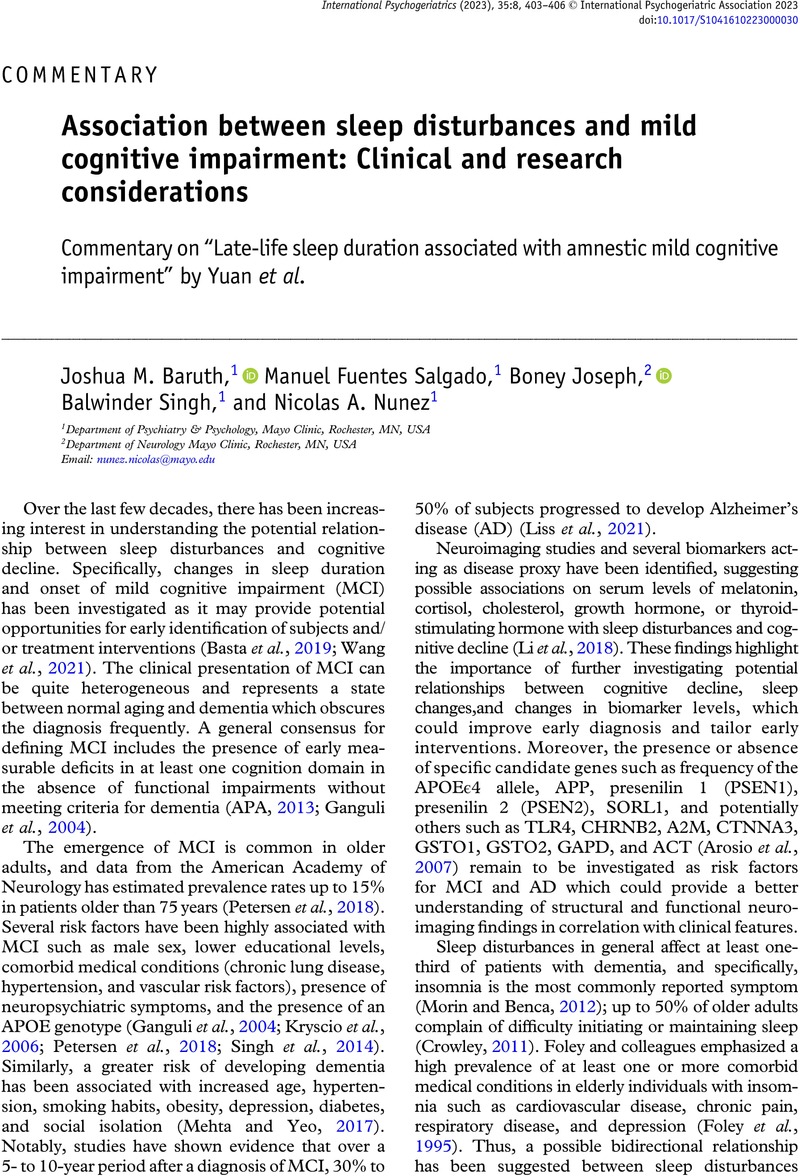Crossref Citations
This article has been cited by the following publications. This list is generated based on data provided by Crossref.
Batzikosta, Areti
Moraitou, Despina
Steiropoulos, Paschalis
Papantoniou, Georgia
Kougioumtzis, Georgios A.
Katsouri, Ioanna-Giannoula
Sofologi, Maria
and
Tsolaki, Magda
2024.
The Relationships of Specific Cognitive Control Abilities with Objective and Subjective Sleep Parameters in Mild Cognitive Impairment: Revealing the Association between Cognitive Planning and Sleep Duration.
Brain Sciences,
Vol. 14,
Issue. 8,
p.
813.
Zeng, Lianlin
Fu, Shasha
Xu, Hailan
Zhu, Lutao
Li, Xiaomei
Cheng, Kang
Li, Yangan
and
Hu, Kehui
2024.
Sleep duration and heart failure risk: Insights from a Mendelian Randomization Study.
Medicine,
Vol. 103,
Issue. 37,
p.
e39741.



